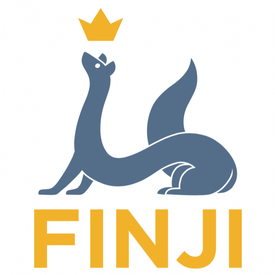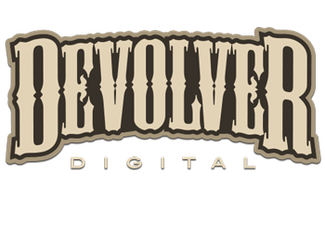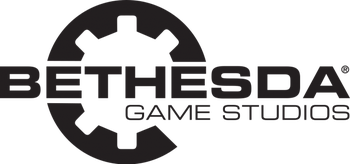Trending
Opinion: How will Project 2025 impact game developers?
The Heritage Foundation's manifesto for the possible next administration could do great harm to many, including large portions of the game development community.
We speak with experts from game companies big and small to learn the best strategy when making the big decision about determining when to announce a launch date.

The announcement of a firm release date for a hotly anticipated game can be a media event in itself. Case in point: Peter Moore's "Halo 2 November 9" tattoo.
But nailing down the perfect time to announce a release date is a tricky gambit -- and extremely important. Announce too early in your dev cycle and you risk enthusiasm waning in the intervening time. Unforeseen complications could cause you to miss your date, earning you the ire of the people who are most invested in your game. Announce too late and you find yourself with a narrow marketing window, with scant time to build excitement around your game and prep for an impactful launch.
There are a number of universal concerns regardless of the size and scale of your studio, but a series of interviews suggests that independents tend to approach establishing and announcing a date very differently than a triple-A developers, who in turn tend to take a different tack than a dedicated PR firm. For indies, the proper time frame can be a couple of months. For triple-A titles, it can be three or four months, or even a year in advance.
 “Dates are best left for games that are done,” says Adam Saltsman, a refrain heard a number of times from independent developers. Saltsman is the dev behind the indie runner Canabalt and a founder game studio Finji. For him, giving the press and public sufficient lead time takes a back seat to reliably hitting your date.
“Dates are best left for games that are done,” says Adam Saltsman, a refrain heard a number of times from independent developers. Saltsman is the dev behind the indie runner Canabalt and a founder game studio Finji. For him, giving the press and public sufficient lead time takes a back seat to reliably hitting your date.
“As soon as the game is done (where 'done' means shippable with only reasonable regrets), I’d throw a date out there," says Saltsman. "Anytime before then is asking for trouble. And even then, there's about 15 caveats for making sure you've orchestrated all your timing and patches and QA with all your platform partners.”
Saltsman emphasizes the importance of pinning down a date that’s reasonable not only for the dev team, but also for the publisher and platform holder. It’s clear that for him, as with a number of the other independent devs we spoke with, that the most important dimension of settling on and announcing a date is hitting it, avoiding delays.
The consensus is that this applies not only to the finished product, but also to dates for things like open and closed betas or early access releases, even patches or content updates. The sense I got from these conversations is that being responsible to your community, the people directly funding your game (and, in many cases, paying your rent), tends to be more immediately important to independent devs than to larger studios or publishers.
"In a perfect world you get your game done, get it greenlit by everyone, then announce the date about two weeks in advance. Everything else seems unnecessarily dangerous to me."
But Saltsman also made it clear that picking a date was often beyond his control.
“As with everything else, there are frequently outside pressures around announcing these dates," he says. "Maybe you have a big press opportunity or promotional thing with a platform coming up, and you have to roll the dice on making that announcement versus missing that date, etc. It'd be nice to always be in an ideal, super-flexible situation, but reality has a way of butting in.”
In Saltsman’s dream scenario, he’s afforded the time he needs to finish and polish a game to a standard he deems acceptable, and then, finished product in hand, declare a firm date.
“In a perfect world you get your game done, get it greenlit by everyone, then announce the date about two weeks in advance," he says. "Then frustratingly sit there with a completely finished game no one but you and the press can play for that period. Everything else seems unnecessarily dangerous to me.”
For a small publisher like Devolver Digital, on the other hand, a broader view is necessary. While hitting the date it announces is still important, Devolver co-founder Nigel Lowrie says his company's launch strategies need to accommodate a wide array potential scenarios, such as industry events and other product launches.
 “It's important to look at a few things," he says. "What other games are already set to release on what days, time to make sure the game is tested, certified on console, and ready to release to the public, whether there are any other major variables like big conventions, sales or announcements expected that should be avoided.”
“It's important to look at a few things," he says. "What other games are already set to release on what days, time to make sure the game is tested, certified on console, and ready to release to the public, whether there are any other major variables like big conventions, sales or announcements expected that should be avoided.”
Lowrie adds that while they try to work with a rough date in mind, “it's not until the game is about two or three months from our target launch that we really drive to nail down a release date."
“Typically, we want to announce a date when both the developer and any console partners are very confident in the date and there’s not a lot of other noise expected," Lowrie notes. "We consider the time of year for sure -- certain times are traditionally more crowded with larger triple-A releases and we like to avoid that when we can.”
He also highlights the importance of announcing alongside some kind of flashy, substantive content reveal, another point I heard repeated again and again during these conversations. “Ideally we go out with some new video content, like the Absolver Combat Overview, and attach the news to that so it gives a little more weight to the announcement.”

Absolver's 8/29/17 release date was announced on 5/10/17. The announcement
was accompanied by a video showing off the game's unique combat system.
On the opposite pole of the development spectrum from the indies, triple-A studios face an even more convoluted matrix of factors. While larger studios have more resources to throw at marketing, they also have more complicated relationships to consider, and millions of dollars may hinge on the timing of and announcement and setting up an advertising cycle. For Pete Hines, the VP of marketing and PR at Bethesda, every announcement comes with its own set of considerations and contingencies.
 “Most recently with Wolfenstein 2 and The Evil Within 2, we decided to announce the date at the same time we revealed the game at our E3 Showcase,” Hines says. “It really depends on how early we decide to announce, tease, and reveal a game from its actual date."
“Most recently with Wolfenstein 2 and The Evil Within 2, we decided to announce the date at the same time we revealed the game at our E3 Showcase,” Hines says. “It really depends on how early we decide to announce, tease, and reveal a game from its actual date."
Wolfenstein 2 was given a 10/27/17 release date and The Evil Within 2 a 10/13/17 release date. The announcement at the June 11th showcase came out over four months in advance of the planned release. Devolver Digital's Absolver announcement came three and a half months in advance of the planned release. These time frames are much longer than the two weeks' worth of notice that Saltsman recommends for indie titles.
"I think the furthest out we’ve announced a specific date was probably for Skyrim, where Todd really wanted to ship on 11.11.11 and he announced that the December before."
"I think the furthest out we’ve announced a specific date was probably for Skyrim, where Todd really wanted to ship on 11.11.11 and he announced that the December before, during the VGAs," he adds. "When it’s the guy in charge of the game’s development that says it’s coming out on that date, and that guy is Todd Howard, it’s pretty easy to get everybody else on board with that plan. But in general, it varies game-by-game.”
For a publisher the size of Bethesda, choosing a release date is even more collaborative, with moving pieces at the developer, their partners, and a global network of production and distribution.
“We usually have a target quarter and an idea of a month within that quarter fairly early on, but as we progress through development and things start to get clearer, we start to get more granular and start to focus on when in the month we think we’d like to release it," says Hines.
"Usually that comes from development giving their best estimate on certification dates and an RTM [release to manufacturing i.e. 'going gold'] date, and from there we can back out how long production and distribution will take around the globe." He adds, "If the date we get from backing out from those dates ends up with something bad (like ‘Hey, let’s not ship on Christmas Eve’) then it’s usually a series of conversations with dev about how much slack is built into their schedule, etc., until we come up with a date that everyone can live with.”
And then there’s the PR agency approach, which by necessity needs to be more of an umbrella under which clients of varying sizes and with varying needs can comfortably shelter. For Jesse Radonski of Evolve PR, a firm with clients as diverse as Gearbox, Adult Swim, and CD Projekt Red, one of the first considerations is the competition.
 “If a developer hasn't already devised a date for release, then usually what I consider is the time of the year before researching the dates of significant competition launching in that timeframe,” Radonski says.
“If a developer hasn't already devised a date for release, then usually what I consider is the time of the year before researching the dates of significant competition launching in that timeframe,” Radonski says.
“Generally, a developer or publisher will know a quarter that the game is launching in. From there, we just try to make sure that, using an RPG as an example, the RPG doesn't launch right around another RPG that may overshadow it.”
Of course, a PR firm can only advise and consult; the final decision is the client’s. “I've worked with some developers that have dated a game six months out, and others where they announced a date three weeks before launch," he says. "I urge developers to make sure to ship a game that has its core features in place. Obviously, there’s a different standard of completeness if a game is launching into Early Access, but overall, the game should be feature complete and relatively bug-free.”
"I've worked with some developers that have dated a game six months out, and others where they announced a date three weeks before launch."
“My general rule of thumb is to pre-seed it with press at least 24 hours in advance with an embargo time, so that they have time to prepare an article for when the embargo lifts," he says. "Then once the embargo lifts, we send the news release wide to whatever regions we're tasked with sending it to. After that, we usually will have to send some follow-up emails to any outlets that may have missed the news originally.
"I used this approach for the recent announcement of Iron Galaxy and Maximum Games' action-adventure game, Extinction, and saw it covered on pretty much every well-known outlet in North America and beyond," adds Radonski. "The key to it is to ensure that what you're sending is truly newsworthy. Otherwise, your pre-seeding may not be effective.”
The main takeaway from all of the conversations that went into this feature is that regardless of the size of your operation, or the complexity of reaching a consensus that works for everyone involved, the most important part of a release announcement is to accompany the announcement with material that will heighten its impact. Radonski echoes Lowrie’s point about launching alongside a high-quality trailer or big reveal. “New screenshots can be helpful too,” he says.
You May Also Like